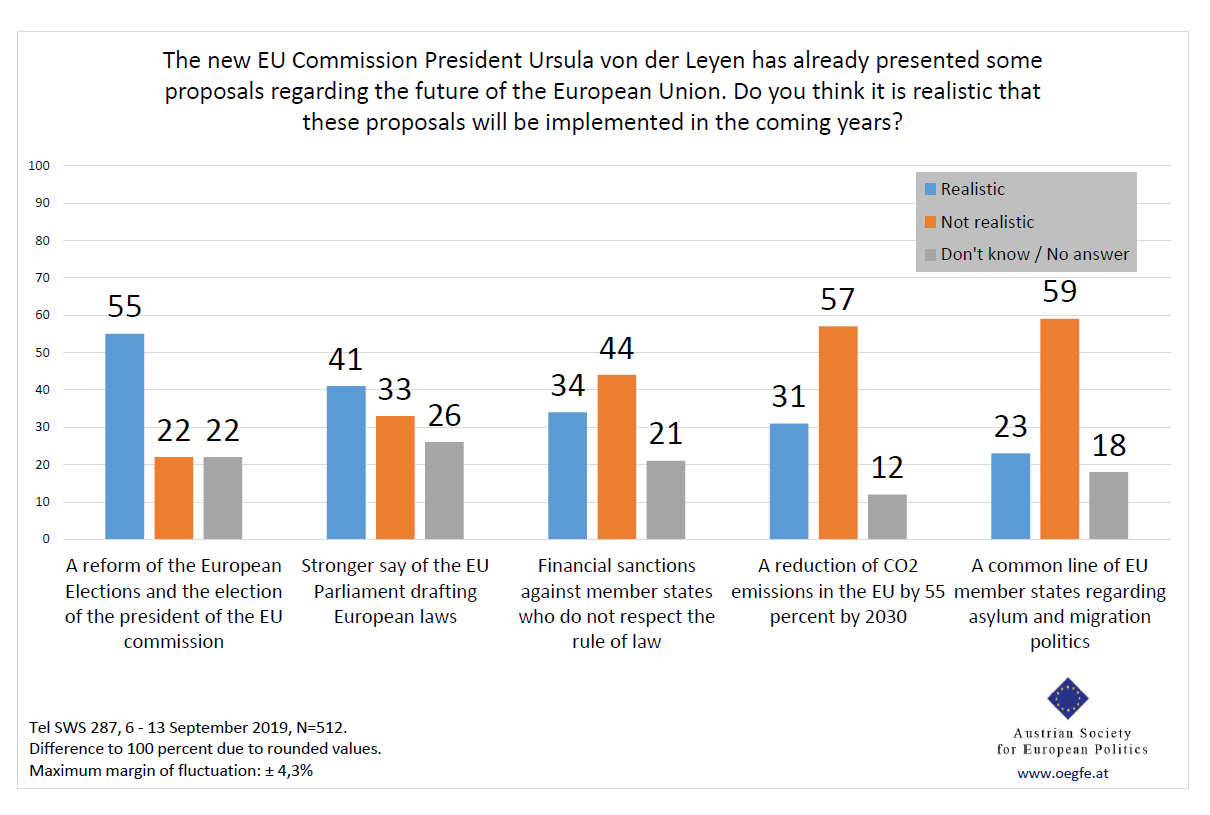Austrians are still undecided if Ursula von der Leyen is a good choice to head the European commission. Regarding von der Leyen’s political proposals, respondents are not overly optimistic that they will be implemented in the near future. These are the findings of a new nation-wide poll by the Austrian Society for European Politics (ÖGfE).
26 percent of Austrians are convinced that Ursula von der Leyen is a “rather good choice” for the post of Commission chief, while 14 percent do think the opposite (“rather bad choice”). However, a majority of respondents could not make up their mind yet: 36 percent have a neutral view on the new Commission president (“neither good nor bad”), 24 percent do not comment on this question.
Regarding von der Leyen’s political priorities, a majority of respondents (55 percent) is confident that a reform of the European elections and the election of the President of the Commission is realistic in the coming years, while only 22 percent consider this unrealistic. The number of those who cannot judge this question is quite large (22 percent).
41 percent believe that the European Parliament will in future have a stronger say in European legislation. However, 33 percent doubt that the EP will be granted more influence, 26 percent do not give an assessment.
On the other hand, Austrians are rather skeptical if it is realistic to “establish financial sanctions against those member states that do not respect the rule of law” within the next years. 44 percent doubt that such a proposal will find a majority, while 34 percent think that it should be doable (21 percent: “don’t know / no answer”).
Nearly six out of ten respondents (57 percent) do not think that is realistic to reduce 55% of CO2 emissions in the EU by 2030. Just under a third is optimistic in this regard (31 percent). The number of those who do not have an opinion on this question is rather low (12 percent).
Respondents are the most skeptical when it comes to assess whether it will be possible to find “a common line of EU states in asylum and migration policy” in the coming years. Only 23 percent consider this realistic, 59 percent, however, see no chance of success. Again, it is nearly a fifth (18 percent) of respondents who cannot comment.
Background:
The survey was conducted by Sozialwissenschaftliche Studiengesellschaft (SWS) from 6 to 13 September 2019 on behalf of ÖGfE (Tel SWS 287). 512 persons were interviewed by telephone (representative of the Austrian population aged 16 and older / weighted according to gender, age and education). Maximum fluctuation range approx. +/- 4.3 percent.






